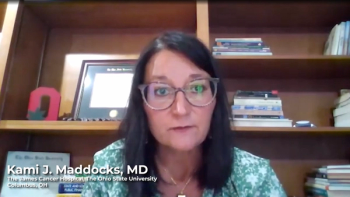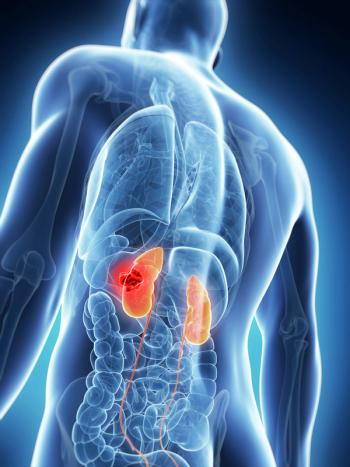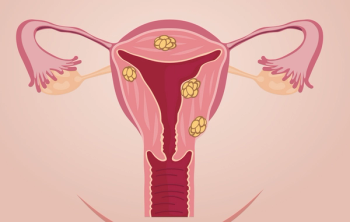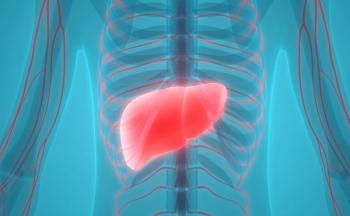
Neoadjuvant treatment with cemiplimab led to near or complete disappearance of cutaneous squamous cell carcinoma in almost 64% of patients set to undergo surgery.

Your AI-Trained Oncology Knowledge Connection!


Neoadjuvant treatment with cemiplimab led to near or complete disappearance of cutaneous squamous cell carcinoma in almost 64% of patients set to undergo surgery.

Kami J. Maddocks, MD, reviews findings from the SHINE trial comparing ibrutinib plus bendamustine/rituximab vs bendamustine/rituximab alone in newly diagnosed mantle cell lymphoma.

Findings from the phase 3 ADURA trial indicated that patients with EGFR-mutated, stage II to IIIA non–small cell lung cancer (NSCLC) experienced a promising reduction in risk of disease recurrence or death following treatment with adjuvant osimertinib.

Findings from the DESTINY-Breast04 trial indicated that patients with hormone receptor–positive, HER2-low metastatic breast cancer experienced promising quality of life following treatment with fam-trastuzumab deruxtecan-nxki.

Patients with with metastatic castration-resistant prostate cancer continued to derive notable benefit from treatment with first-line olaparib plus abiraterone acetate and prednisone or prednisolone compared with abiraterone monotherapy.

Long-lasting duration of response and prolonged survival were observed following treatment with MEDI15752 vs pembrolizumab among patients with treatment-naïve nonsquamous non–small cell lung cancer, according to findings from a phase 1b/2 trial.

Patients with advanced clear cell renal cell carcinoma given lenvatinib plus pembrolizumab had sustained overall survival and progression-free survival benefit vs sunitinib, according to updated results of the CLEAR trial.

Results from a presentation at 2022 ESMO showed DCC-3116 was tolerated in patients with RAS or RAF-mutant solid tumors.

At ESMO 2022, peripheral blood samples taken from patients with advanced or metastatic urothelial carcinoma treated on the phase 3 JAVELIN Bladder 100 trial showed there may be a potential to predict disease response to avelumab.

Findings from an updated safety and efficacy analysis of the phase 3 KEYNOTE-775 trial were consistent with the primary analysis and highlighted notable improvements in outcomes among patients with advanced endometrial cancer treated with lenvatinib and pembrolizumab vs physician’s choice.

Patients with newly diagnosed ovarian cancer with or without a high risk of progression experienced a progression-free survival benefit from treatment with maintenance rucaparib compared with placebo regardless of molecular characteristics.

Overall survival remained durable in patients with metastatic non–small cell lung cancer when tremelimumab was added to durvalumab plus chemotherapy in the frontline setting.

Despite the combination of enzalutamide plus abiraterone acetate and prednisolone (AAP) falling short in patients with metastatic hormone-sensitive prostate cancer, although androgen deprivation therapy plus AAP resulted in a clinically meaningful overall survival benefit.

Patients with localized recall cell carcinoma did not have improved disease-free survival with adjuvant nivolumab plus ipilimumab vs placebo.

Pembrolizumab plus chemoradiation did not meet statistically significant improvement in event-free survival for patients with locally advanced head and neck squamous cell carcinoma.

Results from a blood-based multi-cancer detection test potentially indicated the presence of cancer.

Results from the phase 3 RATIONALE-301 trial showed improved overall survival for patients who were given frontline tislelizumab for unresectable hepatocellular carcinoma.

At the 5-year mark, overall survival was improved with xevinapant plus standard chemoradiotherapy vs matched placebo in locally advanced head and neck squamous cell carcinoma.

Antitumor activity and safety of pembrolizumab plus abiraterone acetate appears to be sustained in chemotherapy-naïve castration-resistant prostate cancer.

Phase 3 data regarding perioperative nivolumab did not show recurrence-free survival benefit, but data from the study may help inform future research.

Data from the phase 3 IMmotion010 trial revealed no benefit of adjuvant atezolizumab vs placebo for resectable renal cell carcinoma.

Results of a phase 2 trial show favorable efficacy and tolerable safety of naporafenib in combination with rineterkib, trametinib, or ribociclib in previously treated, unresectable or metastatic melanoma.

Long-term follow-up of the phase 2 DESTINY-Gastric02 study revealed fam-trastuzumab deruxtecan-nxki continues to show promise in locally advanced or metastatic HER2-positive gastric or gastroesophageal junction adenocarcinoma.

The phase 2 AMEERA-3 trial revealed no progression-free survival benefit of amcenestrant vs physician’s choice of endocrine monotherapy in patients with endocrine-resistant, estrogen receptor–positive, HER2-negative advanced breast cancer.

Progression-free survival and response results presented from the phase 3 TROPiCS-02 trial at 2022 ESMO indicated sacituzumab govitecan-hziy may be favorable vs physician’s choice of treatment for HER2-low or HER2 IHC0, hormone receptor¬–positive metastatic breast cancer.

Phase 1 data on efficacy and safety of ADP-A2M4CD8 in MAGE-A4–positive advanced metastatic disease shows promise at 2022 ESMO.

The nonsteroidal selective estrogen receptor modulator lasofoxifene resulted in better clinical benefit vs fulvestrant in patients with estrogen receptor (ER)–positive, HER2-negative, ESR1-mutant metastatic breast cancer.

Findings from long-term follow-up of the EMPOWER-Cervical 1 study demonstrated that cemiplimab improved survival vs chemotherapy and resulted in a safety profile like other anti–PD-L1 agents.

Long-term results of a phase 2 study (NCT02211131) revealed consistent efficacy at 5 years with talimogene laherparepvec in stage IIIB to IVM1a melanoma.

Results from the LEAP-002 trial revealed extended median overall survival with lenvatinib monotherapy in patients with unresectable hepatocullar carcinoma.